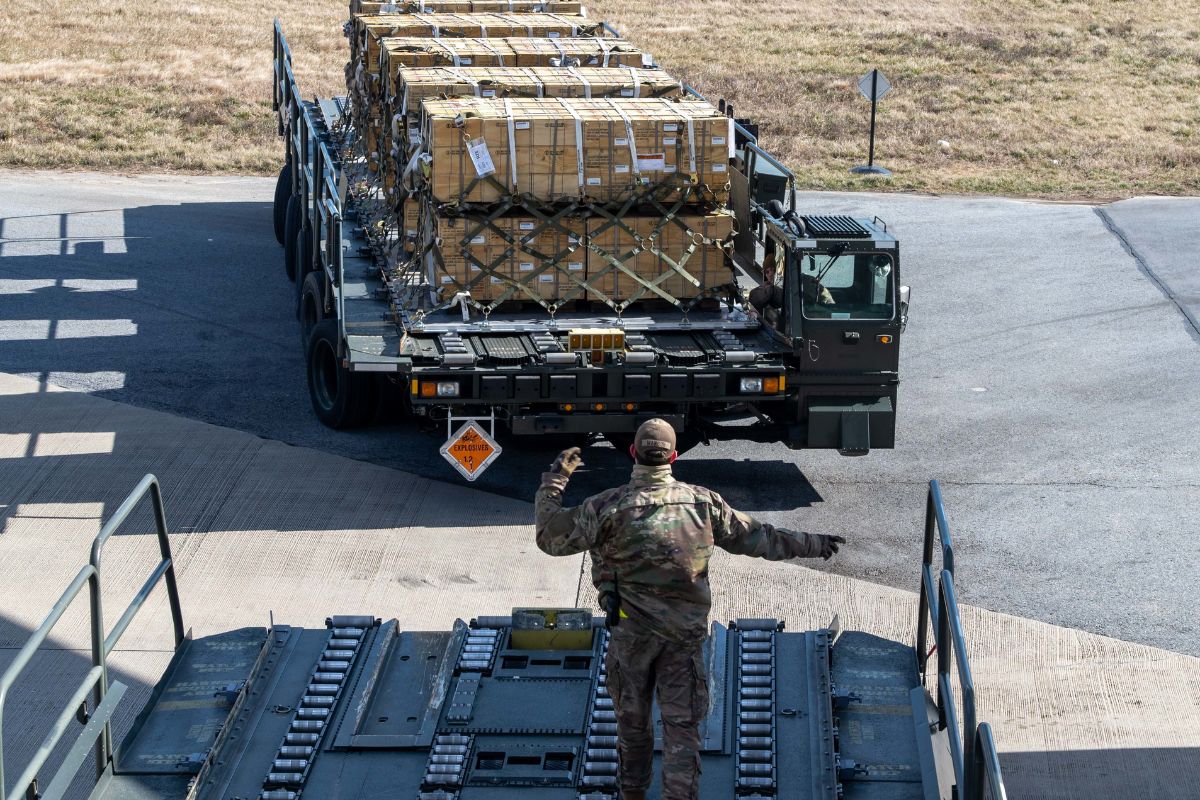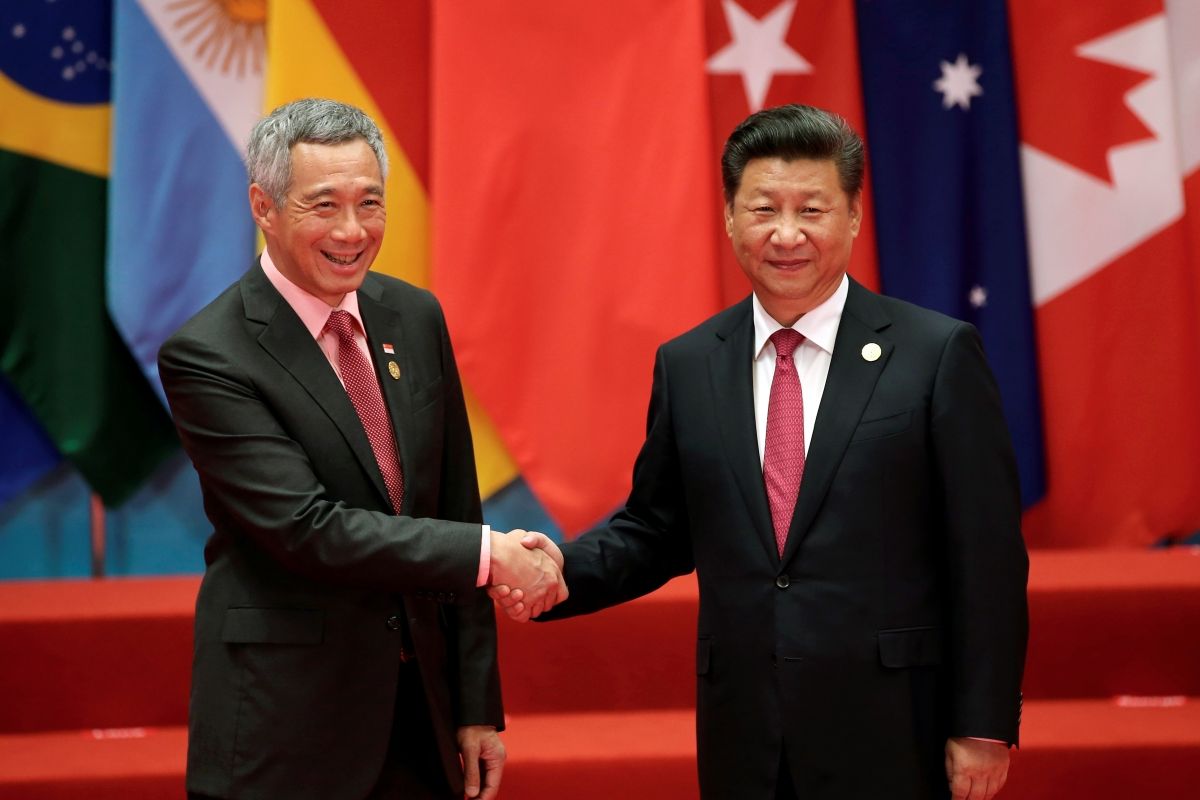According to many diplomatic sources who spoke to The Wall Street, Europeans are waiting to see how another round of high-level negotiations between the US and Russia turns out, and several US allies are extremely concerned about the framework the Trump administration is promoting to end the war in Ukraine.
According to an official familiar, the administration’s framework, which was unveiled in Paris last week, calls on Kyiv to make major concessions, such as the US de facto recognizing Crimea as Russian territory and Ukraine handing over vast areas of its territory to Russia.
“To freeze the territorial lines at some level close to where they are today,” Vice President JD Vance suggested on Wednesday.
Trump said, “stopping the war,” in response to a question about what concessions Russia was making on Thursday, implying that not “taking the whole country” is a “pretty big concession.”
The Trump administration’s proposed framework, according to several allied diplomats, has them alarmed because they think it sends a dangerous message to world leaders, including China’s Xi Jinping and Russia’s Vladimir Putin, that illegal conquest could be rewarded.
This relates to the core ideas of international law. An Eastern European ambassador told The Wall Street, “This is very much about our own existence and the weakening of any safeguards that my country or other countries have for our own independence.” They discussed delicate diplomatic issues on background, along with other sources.
“No country in Europe or elsewhere can feel safe, NATO or no NATO,” the diplomat stated, “if one country in Europe is currently under pressure or being forced to give up parts of its own legal territory, territory that has been that has been recognized as part of Ukraine.”
Years of US policy declaring that Crimea is Ukrainian territory notwithstanding Russian occupation would be reversed by the proposal for a de facto US recognition of Crimea as part of Russia. The US is isolated as European officials declare they will not follow suit.
Concerns about an end-of-war deal that would reward Russia following the bloody struggle are also emerging among Asian allies.
Asian diplomats have expressed their fears about the global ramifications of a settlement that breaches Ukraine’s boundaries in secret conversations with US allies.
China is observing. That’s what we’ve told the Trump administration. One Asian ambassador stated, “We are concerned about the message they might take away from any end to the war that seems to award Russia for the bloodshed.”
Following reports that progress was made in negotiations with US, Ukrainian, and European officials in London on Wednesday, all eyes are now on the anticipated meeting between Putin and special envoy Steve Witkoff on Friday.
Many Europeans, however, are concerned that the pace of development may not meet Trump’s demands for a speedy conclusion to the conflict.
As European politicians caution that the Russian president cannot be trusted, there are also worries about what other promises Putin would make to Witkoff in an attempt to win over the United States.
Given the US’s desire for a speedy conclusion to the war and the US envoy’s history of echoing Putin’s arguments, officials are unsure of the degree of pressure that will be used during Witkoff’s fourth visit to Russia.
Following a devastating volley of Russian missile strikes on Kyiv, Trump voiced his displeasure with the Russian leader on Thursday morning, claiming that the actions were “not necessary, and very bad timing.”
Trump expresses his frustration
“Stop, Vladimir! Every week, 5,000 warriors lose their lives. He posted, “Let’s get the peace deal DONE!” on TruthSocial.
However, the US president stated hours later that he thought Russia and Ukraine both desired peace.
But Trump has used significantly harsher rhetoric when attacking Ukraine’s leader, Volodymyr Zelensky, far more often than when he has attacked Putin.
In the meantime, negotiators have praised progress in the high-stakes diplomatic negotiations this week, including actions done by the Ukrainians, despite the fact that the framework on the table has many friends extremely uncomfortable.
Following a full day of meetings in London on Wednesday that included senior officials from Ukraine, Germany, the United Kingdom, France, and the US envoy to Ukraine, Keith Kellogg, a European official familiar with the talks said, “We got [the Ukrainians] to a point where there will be conversations about territory.”
The person stated that they “managed to convince the Ukrainians to convince themselves to get in a more US administration-friendly position,” adding that simply changing their way of thinking was progress.
According to Kellogg, the discussions were “candid, positive, and productive,” he told The Wall Street.
With the anticipation that the meetings would not be decisive, the Trump administration canceled plans for Secretary of State Marco Rubio to attend, leaving Kellogg as the top US official at the table for the discussions.
According to a joint statement from the British, French, and Germans, “significant progress was made on reaching a common position on next steps.”
When asked how flexible the Ukrainians are on territorial issues, a German official responded, “The Ukrainians are coming around and understand the situation, even though they have red lines they cannot cross.”
According to a second European official, the British government has been collaborating with the Ukrainians to attempt to advance on the US framework.
It would be supported by security assurances that are frequently mentioned by European partners, including possible soldiers in Ukraine. Trump has stated that no American military would travel to Ukraine, and Russia has rejected the idea.
Realpolitik dictates that any agreement that will win over Russia would appear unfavorable to the Ukrainian people.
However, the Ukrainians will have to accept something that might not be as good as the deal they would have preferred two years ago, within reason,” stated another European diplomat. “We are exactly there.”
But even if Zelensky agreed to a harsh plan that involves large land concessions, which one Ukrainian member called “political suicide,” the Ukrainian parliament would not approve of the proposal, the congressman added.
There doesn’t appear to be a US plan for carrying out a prospective agreement, according to some, and Washington might be pushing past the concept of a ceasefire in an effort to put an end to the war as soon as possible.
The first European official stated, “The American position is clear: take it or leave it, this is where we are.” “The Ukrainian position, which is also somewhat ours, is that territorial negotiations are necessary, but when will they take place?”
It’s unclear exactly what the US government is asking for right now, apart from a stop to the fighting. It seems to be attempting to jump ahead to the much more difficult task of defining the parameters of a lasting peace, more than a month after demanding an immediate ceasefire, which Russia rejected.
“At this juncture, we judge that getting agreement on key terms now is the most expeditious way to achieve the core objective” said one US official familiar with the months-long back and forth who criticized the administration’s lack of strategic approach, calling it “somewhat directionless, rudderless, confused.”
As per CNN The diplomacy has been very ad hoc. The confusion over who does what on the file is as pronounced as ever,” said the official. “People seem to accept the chaos.”
Read more
Trump Blames Zelensky as Ukraine Peace Efforts Falter
Nuclear Negotiations: Trump’s Dilemma with Iran’s Threat

Zach Cooper is an experienced Crypto & Financial news journalist, having written for Moneycheck.com, The wall street, Computing.net and is Editor in Chief at wallstreetsights.com







